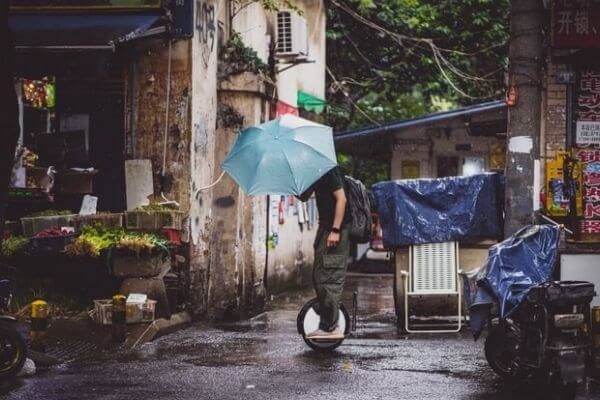
Recently, the judge who issued the second anti-suit injunction in China wrote an article on the anti-suit injunctions in the standard essential patent (SEP) litigation.
In April 2021, Judge Zhao Qianxi (趙千喜), who serves in Wuhan Intermediate People’s Court, published an article entitled “The Anti-Suit Injunction in the SEP Litigation” (標準必要專利之訴中的禁訴令) in “People’s Judicature” (人民司法) (No. 13, 2021), introducing the anti-suit injunction in China.
Judge Zhao was one of the judges in Xiaomi v. InterDigital (2020) E 01 Zhi Min Chu No. 169-1 ((2020)鄂01知民初169之一), the case where the collegial panel handed down China’s second anti-suit injunction.[1]
It is worth noting that Judge Zhao is also the judge in Liu Li v. Tao Li and Tong Wu (2015) E Wuhan Zhong Min Shang Wai Chu Zi No. 00026 ((2015)鄂武漢中民商外初字第00026號), the case where China recognized and enforced the US judgment for the first time. [2] See an earlier post, Thus Spoke the Chinese Judge Who First Recognized and Enforced a US Court Judgment, for a detailed discussion on judicial review of the application of recognition and enforcement of foreign judgments.
Below is a brief introduction to his article.
I. What is an anti-suit injunction
The term “anti-suit injunction” refers to the order prohibiting the parties from bringing lawsuits in other courts. The anti-suit injunction mainly exists in common law countries.
In the past, the courts mainly issued anti-suit injunctions in traditional commercial disputes, especially in maritime disputes. However, with the development of wireless communication technology, especially the large-scale commercialization of 3G and 4G technology, the number of parallel SEP litigation in the field of wireless communication has largely increased, resulting in the necessity of anti-suit injunctions in SEP disputes as well.
II. China’s relevant regulations
There are no specific provisions on anti-suit injunctions in Chinese laws. In maritime and intellectual property disputes, Chinese courts may take compulsory measures to order the person to act or not to act.
Chinese courts try to include “shall cease litigation in other countries or shall not file lawsuits in other countries” in the range of the compulsory measures “to act or not to act”.
As for intellectual property disputes, such compulsory measures have only been gradually clarified in recent years.
In 2001, the Supreme People’s Court (SPC) promulgated the “Several Provisions on the Application of Law to the Cessation of Patent Infringement before Litigation” (關于對訴前停止侵犯專利權行為適用法律問題的若干規定), establishing the system of ceasing patent infringement before litigation.
In 2017, China revised the Civil Procedure Law (CPL). Article 100 of the CPL on conduct preservation has become an important part of the litigation preservation system, in the sense that, upon application of one party for conduct preservation, the court may order the other party concerned to do certain acts or prohibit it from doing certain acts.
Later, in November 2018, the SPC adopted the “Provisions on Several Issues concerning the Application of Law in the Examination of Conduct Preservation of Intellectual Property Cases” (關于審查知識產權糾紛行為保全案件適用法律若干問題的規定) (hereinafter the “Provisions on Conduct Preservation of Intellectual Property Cases”), making comprehensive provisions on conduct preservation, etc. in intellectual property disputes.
Under the context of Chinese laws, conduct preservation mainly refers to stopping one party from ongoing or threatened infringement or breach of contract, so as to avoid additional or aggravated damage to the other party; or prohibiting one party from doing certain acts aiming to evade the judgment prior to its entry into force.
However, the said article does not specify what kind of conduct should be prohibited. Therefore, its specific scope can be highly inclusive.
As a result, “bringing a lawsuit in the court of other countries or regions” may be covered by the said article.
Chinese courts attempt to make anti-suit injunctions by invoking this article, just like what the SPC did in Huawei v. Conversant (2019) Zui Gao Fa Zhi Min Zhong 732, 733 and 734), the case where China’s first anti-suit injunction was issued and set an example for local courts nationwide.
III. Related cases in China
In Huawei v. Conversant, Huawei filed a lawsuit in the Nanjing Intermediate People’s Court of Jiangsu Province in January 2018, requesting the court to confirm that its conduct did not infringe Conversant’s SEP, and to determine the licensing conditions of the SEP in this case.
On 20 Apr. 2018, Conversant sued Huawei for infringement upon its SEP in the Court of Düsseldorf, Germany.
In September 2019, the Nanjing Intermediate People’s Court made a judgment. Conversant refused to accept the first-instance judgment and appealed to the SPC.
During the second instance by the SPC, the Court of Düsseldorf made a judgment against Huawei in August 2020.
Huawei then applied to the SPC for conduct preservation, requesting the court to order Conversant not to apply for enforcement of the infringement cessation judgment made by the Court of Düsseldorf before the Chinese court renders the final judgment.
In August 2020, the SPC ruled for Huawei’s application, and dismissed Conversant’s request for reconsideration in September. This is the first anti-suit injunction in China.
Later, the Wuhan Intermediate People’s Court of Hubei Province also issued anti-suit injunctions in two cases: Xiaomi v. InterDigital for SEP licensing dispute (September 2020); Samsung v. Ericsson for SEP licensing dispute (December 2020).
IV. How do Chinese courts examine the application for anti-suit injunction in SEP
Although the above three cases all involve the restriction of the respondent’s litigation behavior in foreign courts, there are great differences in terms of prohibited acts and injunction scope.
In Huawei v. Conversant, the content of the injunction is to prohibit the respondent from applying for the enforcement of the infringement cessation judgment made by a foreign court, which can be actually categorized as an anti-enforcement injunction.
In Xiaomi v. InterDigital, the injunction so rendered is a standard anti-suit injunction, including prohibiting the respondent from seeking injunctive relief against Xiaomi’s products, and from applying for adjudication of royalty rate from foreign courts.
In Samsung v. Ericsson, the injunction so rendered is the most inclusive one, which includes not only prohibiting the respondent from seeking injunctive relief against products, but also from applying for anti anti-suit injunction from foreign courts.
In the above three cases, all relevant Chinese courts invoke Article 100 of the CPL on conduct preservation, and analyze the cases according to Article 7 of the Provisions on Conduct Preservation of Intellectual Property Cases on the examination terms of conduct preservation, while taking into account the particularity of SEP disputes.
According to the said Article 7, Chinese courts should examine the following four aspects:
(1) Whether the applicant’s claim has a factual basis and legal basis;
(2) Whether the failure to take conduct preservation will cause irreparable damage to the legitimate rights and interests of the applicant or make it difficult to enforce the judgment;
(3) Whether the damage caused to the applicant by not taking conduct preservation will exceed the damage caused to the respondent by taking conduct preservation; and
(4) Whether the adoption of conduct preservation damages the public interest.
While reserving items (2), (3), and (4) of Article 7, Chinese courts do not directly apply item (1) which does not meet the SEP dispute characteristics. At the same time, Chinese courts also consider the impact of the application for enforcement of foreign court judgment by the respondent on China’s litigation, and whether the adoption of conduct preservation conforms to the doctrine of international comity.
References:
[1] 參見小米通訊技術有限公司與美國交互數字公司FRAND費率糾紛一案((2020)鄂01知民初169之一),http://www.ipeconomy.cn/index.php/mobile/news/magazine_details/id/1576.html
[2] 參見申請人劉利與被申請人陶莉、童武申請承認和執行外國法院民事判決一案((2015)鄂武漢中民商外初字第00026號)
Contributors: Meng Yu 余萌









